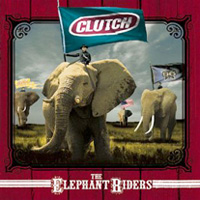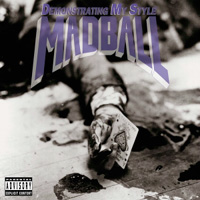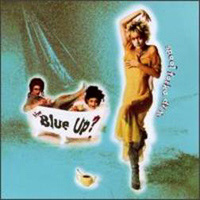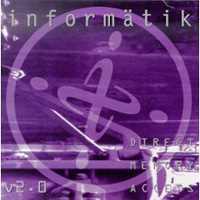 Clutch
Clutch
The Elephant Riders (Columbia)
An interview with Neil Fallon
by Jason Carr
Neil Fallon called at the designated hour, just as I dragged myself in the door bedraggled, sober, and with sweat-laden boxers from the freak heat wave. As luck had it, however, Neil had to go back out to pick up his girlfriend at school – giving me time to collect my thoughts, shower, and toss back a few before we started.
Hey, Neil. Thanks for calling back.
Thanks for letting me call you back.
I’ve been listening to (and loving) your music since your first album in ’93, Transnational Speedway League, EastWest.
That album was written and recorded half in our home, and half in a San Francisco Studio.
It’s very reminiscent of watching the customers of a crusty Mexican bar.
Exactly. We drank a lot of tequila for that first album, which is definitely where it gets its character.
Clutch, on the other hand, was a much more lucid and prophetic version of Cheech and Chong.
Yeah, we spent most of our time smoking pot, compared to the drinking we did on the previous album. And there was more of a message there.
Why did you self-title your second release?
Partly because we felt we had done ourselves more justice than on the first album. But I think when we sat down to name it, we said, “What do we call this thing?” No one could think of anything, so we just decided to call it Clutch. I guess you could attribute it to a bit of laziness.
To get off track for a second, I’ve heard you wrote “Big News III”?
We did. The only reason we called it that was because of its nautical theme, an old sailor’s type song. We didn’t put it on the album because we were extremely unhappy with the arrangement, and we’d rather put it out in a manner that satisfies us first. Maybe we’ll put that version out on B-Sides someday.
With The Elephant Riders, what sort of theme were you going for?
Well, I didn’t have a specific plan to begin with, but after I finished, I would say that it’s more of a historical reference than anything else. The songs are more narrative, each is a little story in itself – a lot of them are about the past. I guess you could say each song is sort of a little fiction.
 You had two drastically different chemical influences on your first two albums, what about with The Elephant Riders?
You had two drastically different chemical influences on your first two albums, what about with The Elephant Riders?
You know what? We did this album completely sober. The music we write is done collectively, and each album is a snapshot of where we were at the time. We don’t go in with some great plan, we just write it. I had to do a lot of thinking with this album, and I rewrote the songs quite a bit before recording.
Where did you record this album?
It was written and recorded half in West Virginia, half in New York City with Jack Douglas (Aerosmith, John Lennon, Patti Smith, Cheap Trick, etc.).
Where in West Virginia?
We did it in an old house, built in 1780, that had a very heavy feel to it – the walls just weighed in on you. We moved in to do it there because there weren’t any neighbors, and we were told that Stone Wall Jackson had stayed there. The area inspired the historical theme in some of the songs.
Is that where you got the idea for “Dragonfly”?
Yeah. The house was located in an extremely rural area, it was almost being taken over by nature. There were all types of insects and natural phenomenon going on all around us. I realized that I hadn’t written about something like that, and it was hard for me to write the song and pull it off the way I wanted to. Actually, I wrote it in New York after we had left the area. I realized then how much I liked it and had grown accustomed to it.
One thing in particular that caught my attention about this album: It’s the first time I’ve heard you do songs about women.
Actually, it’s funny you should say that – when I was writing, I thought it would be a good subject. I try to write about as many different things as I can, and one day I realized I hadn’t done a song about women. On the first album, there were some vague references to “it,” which was usually some melodramatic ex-girlfriend bullshit I completely fabricated. I tried to write a love song with “Green Buckets,” but I could only take it so seriously before I started to get goofy. The same is true of “Muchas Veces.”
Why did you choose “The Elephant Riders” as the title track?
Making the album art, or at least the conceptualization of it, is my favorite part of the whole process. We could have used any of the tracks, but when we finished writing that song, the image of a man riding on an elephant, specifically a Civil War soldier, just struck me as a very strong image to be placed on the cover.
How is it working with Columbia instead of EastWest?
It’s a complete change. If this band were still on one of its previous labels, we wouldn’t be doing this interview. Columbia has taken the time to set up interviews for us, and spent a lot of money promoting this album.
That must feel good.
Yeah, it gives us faith in the label. In the past, the burden has always been on our shoulders with touring because we’ve been the band’s best promotion. I do think that’s the way it should be, but it’s also a business partnership, and they (the label) should do their share. I’m happy to say Columbia has really done that for us.
You just finished the first leg of a tour, right?
Yeah, we finished off in Jacksonville (Florida) on April 9th. We were out on the road for two months with Sevendust and Limp Bizkit for the “Ladies Night in Cambodia ’98 Tour,” and we have about nine months of touring left. We’re off for the next three weeks, and then we’re opening for Slayer on a three week stint before doing a headlining run.
With your style, it would seem live shows are more important than studio work.
Absolutely, without a doubt. I don’t really like going into the studio, it’s too repetitive. To me, touring is what rock ‘n’ roll is all about. Videos and studios are all extra. It’s a great way to make money, but when it comes down to it, the only thing that’s been our bread and butter are the live show. The reason we’re here is to perform.
Do you do a lot of improvisation on stage?
Yeah, more and more. It’s very hard and risky to do. A lot of times there will be certain portions of the set which are dedicated to performing something completely off the cuff. Tim or Dan will play a riff none of us has ever heard, and we just have to follow through.
It must be easier now that you’ve been together for so long.
We’ve known each other since ’88. We formed after graduating from high school in Germantown, Maryland, and played our first show in ’91. We’ve definitely gotten tighter. A lot of times, things happen and we don’t even realize it. I mean, Tim and John Paul trading licks back and forth has become second nature. That also happens in the songwriting as well. Even in the beginning, we were never possessive of the music, everything is collaborative.
Do you have new songs in the works?
Always, always. We probably have three songs in the zygote stage right now, and they’ll be on the next album. We already play them live.
Just to cover the esoteric bases, does religion have any influence at all in your writing?
I would say yes. For me, spiritual matters are much more important than material ones, and anger is the easy and lazy way to write a song. It’s much more challenging and rewarding to write a song with a positive intent.
So this is new for you?
Yeah, it was very hard for me to get away from it because I spent a long time writing and being angry. It’s a trap. But once you get out of it, the end result is much more fulfilling.
A friend and I have spent more than a few chemically-induced evenings trying to determine your personal take on religion. Mind sharing?
Sure, but you know what? I really don’t know. I think, to a certain degree, that’s the best approach: humility. I certainly believe there is a Master Plan, Creator, and Afterlife, but the specifics of dogma are just way to thick for me to go through now. I’m too young. I’ve only been on the planet for 26 years, and only really started thinking about it in the past 10. Most gurus spend all their lives thinking about this “thing” and die saying that they know nothing.
What about death?
Don’t get me wrong, I don’t have a morbid attraction towards it, but in some ways, I’m looking forward to it so I can see what it’s all about.
And lastly, where do you want to take Clutch? What’s next?
I want to take Clutch to Japan – and Australia, and New Zealand. I want to take Clutch to some different territories. I mean, it’s a great way to see the world for free. That’s my big thing. Of course, I’d love to make a lot of money at it, but that’s not the reason we do it. There are more important things than that, like going to Japan and having some really good sushi.



